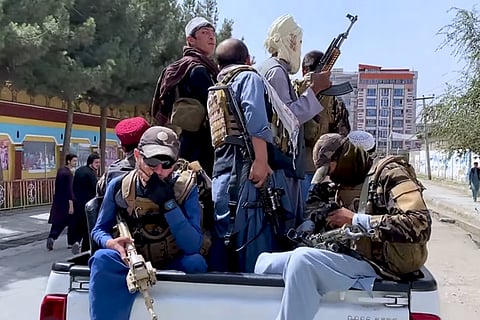

The International Criminal Court issued arrest warrants Tuesday for Taliban Supreme Leader Haibatullah Akhundzada and Chief Justice Abdul Hakim Haqqani, declaring their systemic oppression of Afghan women and girls a crime against humanity. Judges cited "reasonable grounds" that the leaders orchestrated gender-based persecution since the Taliban seized power in August 2021, imposing over 80 edicts that stripped women of education, movement, and basic freedoms. The warrants mark the ICC’s first case centered solely on gender crimes.
The Taliban rejected the warrants as "baseless rhetoric" and an "insult to Islam," asserting they "do not recognize the ICC’s authority". In a pointed counterattack, the group invoked the court’s failure to address "hundreds of women and children killed daily in Gaza," highlighting perceived double standards. Russia’s TASS agency amplified this critique, noting the warrants’ timing amid Western nations’ refusal to enforce ICC warrants against Israeli officials. Regional powers like Türkiye and Qatar, which previously condemned Taliban policies remained silent Tuesday, reflecting complex diplomatic balancing.
The ICC documented how Taliban policies "severely deprived" women of education (affecting 2.5 million girls), privacy, and freedom of expression—including bans on singing and requirements to cover windows. Former Afghan parliamentarian Shukria Barakzai hailed the warrants as "historic," while activist Zahra Haqparast described euphoria upon hearing the news: "I ran to check if it was true... my food burnt". Legal experts emphasized the warrants’ symbolic weight, with Human Rights Watch noting they transform Taliban leaders into "wanted men" regardless of arrest prospects.
With no police force, the ICC relies on member states to enforce warrants, a system facing severe credibility tests. Western nations previously refused to arrest Israeli Prime Minister Benjamin Netanyahu over Gaza war crimes charges, while the U.S. sanctioned ICC officials. Afghanistan’s neighbor Iran, though critical of the Taliban, echoed sovereignty concerns, with state media questioning "neo-colonial judicial overreach". Analysts note Akhundzada’s reclusive presence in Kandahar makes arrest unlikely, yet the warrants intensify pressure on nations engaging with the regime.